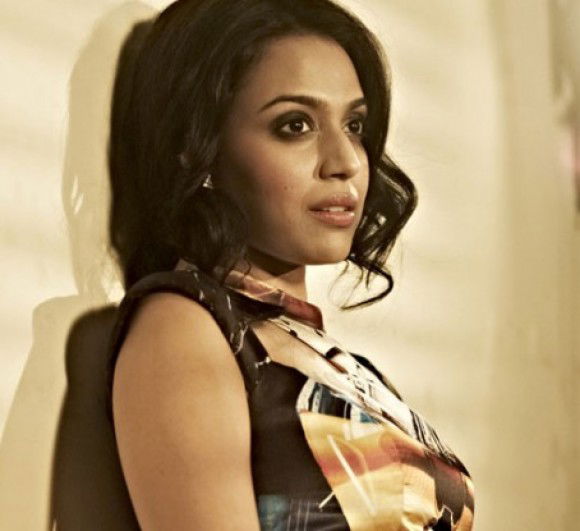Filmworld
Hindi film heroine has lost the burden of being good: Swara Bhaskar

New Delhi, May 2: Actress Swara Bhaskar, who has essayed some strongly opinionated roles in films like "Nil Battey Sannata", "Anaarkali of Aarah" and "Listen... Amaya", says that heroines in Hindi films are no longer expected to be like "a white angelic character".
She feels it's liberating to see the loss of that perfection in the female protagonist and the fact that she can be grey, complicated and confused is a positive development.
"As far as the Hindi film industry is concerned, the biggest development and greatest achievement is that the heroine has lost two things: Firstly there is no binary dichotomy between heroine and the vamp. The heroine (is no longer considered) as the virtuous, sexually-unthreatening and docile female figure and the vamp as the sexually promiscuous, sexually free and sexually expressive and available figure.
"That binary opposition has been lost and now you see films like 'The Dirty Picture' and 'Anaarkali of Aarah' where you have heroines as protagonist who are sexually both promiscuous, expressive, free and fearless," Swara told IANS in an interview.
The 29-year-old, who was in the capital to work for jewellery designer Akassh K. Aggarwal's "Changing Phase of Feminism" show at the India Runway Week, also feels that the Hindi film heroine has lost the burden of being a good girl.
"And ultimately being the white angelic character. While it was there in films like 'Bandhini' and 'Guide' where you had female characters who were very complex, but largely speaking, commercial Hindi cinema was stuck to heroines who were very good, virtuous and angelic. Now in the latest set of films, you see characters like Tanu in 'Tanu Weds Manu' or Zoya from 'Raanjhanaa'. They are dark or grey characters.
"The loss of that perfection and the fact that she can be grey, complicated and confused, I think that is a very positive development -- whether you call it feminism or gender issue in the Hindi film industry. I think it's liberating for women and I think it's a great step when it comes to representation of women," she added.
Swara, who has created a niche for herself even by playing supporting roles in films like "Tanu Weds Manu", "Tanu Weds Manu: Returns" and "Raanjhanaa", feels that she is a director's actress.
"Actors seem most glamorous and the most important part of a Hindi film when you see that on silver screen, because our faces are plastered all over, but I always feel that actors are the most dispensable part in Hindi films. We are very easily interchangeable or replaceable. Cinema is a director's medium and it is the vision of the director that drives the film," she said.
Swara also feels that her journey in Bollywood has been a wholesome experience.
"I think it's been a slow, determined road. From smaller parts to bigger lead parts, I think it's been a good balance of both commercial and not-so-commercial works. I think I have broken a lot of rules of what a heroine should do or shouldn't do as far as Bollywood is concerned.
"I am an outsider in the industry and I neither have a godfather nor anyone backing me... (In spite of that) it's been amazing," she said.
With some of her powerful roles in films that touched upon social issues, does Swara relate more to issue-based cinema?
"I don't think I am more relatable to issue-based cinema because I have done equal number of hardcore commercial films that had no social issues as a part of story line. I think what perhaps happened was that all the characters that I have played were strong, empowered characters. So there is this... woman-of-substance kind of image that gets associated with me on screen.
"I stay cool with that and it's a good image to have. I am conscious of the kind of films I do or the kind of films I have," said the actress.



































